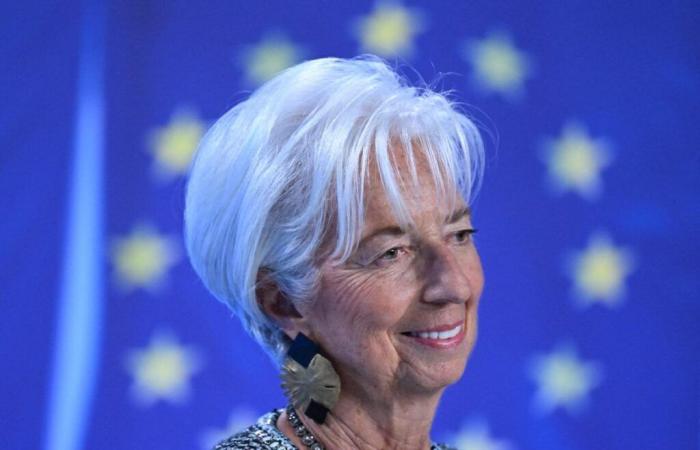The ECB can afford to take this path because the environment in the euro zone has changed radically since the inflation peak of more than 10% observed in the fall of 2022. Two years later, the concern is more about “Weaker-than-expected growth prospects and increased uncertainty linked to geopolitical events,” Ms. Lagarde said.
“Restrictive” monetary policy
“Increasing geopolitical uncertainty could create new shocks in household sentiment”, which would slow down consumption, however, warns the leader. In particular, “if the United States – our largest export market – adopts a protectionist policy, growth in the Eurozone risks suffering.”
To date, monetary policy “remains restrictive”, which means that the still high cost of money is penalizing the economy, she said beforehand.
And this, although the ECB lowered its reference rate last Thursday for the fourth time since June, bringing it to 3%, after it reached its historic high of 4% in 2023.
The ECB's key rates directly impact the borrowing rates applied by banks to businesses and households.
Several declines in 2025
By lowering them gradually, the monetary institute can stimulate growth while ensuring that this does not revive inflation.
The markets anticipate that the ECB will make several further rate cuts in 2025 to bring the reference rate to around 2%, i.e. a so-called neutral level which neither penalizes nor supports the economy.
The ECB has put its communication in tune with the markets: it now says that rates no longer need to remain “sufficiently restrictive for as long as necessary”, a formula used since 2022 in a context of high inflation and uncertainty over its future trajectory.
According to the new formula inaugurated at its meeting on Thursday, the institution is confident about a “sustainable” return of inflation within the framework of its mandate and plans an “appropriate” policy on rates, based on economic data .






